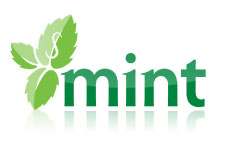The hammer falls on Quicken Online; Mint.com emerges solo


The company closed on its $170 million acquisition of Mint yesterday. That made Mint founder and CEO Aaron Patzer the new vice president and general manager of Intuit’s Personal Finance Group, heading up Mint.com, Quicken Online and Quicken desktop products.
His first decision? Quicken Online must die.
“Over the next 6 to 9 months,” he said to TechCrunch, “we will end-of-life Quicken Online and their customer’s data will be migrated over to Mint.”
But like the acquisition, the move is smart. Quicken and Mint couldn't coexist for too long because they serve the same purpose. Quicken has about 1.5 million users, but only 100,000 are active each month. In comparison, Mint's got 1.7 million users, and 700,000 are active each month.
[SmartPlanet: Why Intuit’s purchase of Mint.com is so smart]
So Quicken's throwing in the towel on its brand extension and going with the more engaging site.
The question remains how the company will manage two brands that are distinct from each other. Mint has a very glossy, light feel; Quicken's very red-and-gray, with style to match.
But it makes sense -- Mint took off thanks to adoption by young professionals who weren't scared of putting financial data into the cloud. Quicken Online only bulked up after seeing Mint fly past it.
But leveraging the personal finance software with Intuit's tax software is where the move really shines: TurboTax may eventually suggest tax deductions to you based on what you've entered in Mint (401k, stocks, etc.).
Expect to see more moves on the mobile front, too. Mint's popular iPhone app will continue development, and perhaps we'll see desktop apps and mobile apps on other platforms. With Intuit's backing, there's also much more hope for international scaling, including Canada, which has been left out of Mint, much to Canadians' disappointment.